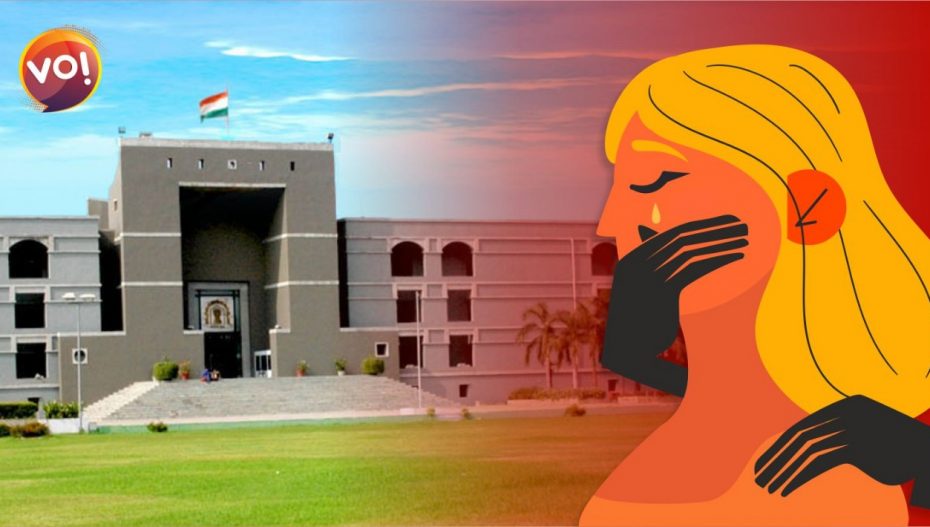An archaic 1860 provision in the Indian Penal Code that exempts marital rape from the definition of rape as an offence has been challenged in 2021.
The Gujarat High Court has agreed to examine a public interest litigation which challenges the Constitutional validity of exception 2 to Section 375 of the Indian Penal Code which exempts marital rape from the purview of rape.
Hearing the petition, a division bench of Justice JB Pardiwala and Niral R Mehta observed that, “It is high time that a writ court undertakes the exercise of considering, whether the Exception-2 to Section 375 of the IPC could be termed as manifestly arbitrary and makes a woman’s fundamental right to sexual autonomy subject to the whims of her husband.”
The high court issued notices to the Attorney-General of India, State of Gujarat and Additional Solicitor General Devang Vyas. Explaining why it was necessary to send notice to the A-G, the bench said, “Since the constitutional validity of Exception 2 to Section 375 of the IPC has been questioned, let notice be issued to the learned Attorney General of India through the Secretary, Ministry of Law and Justice, New Delhi.”
The public interest litigation has been filed by one Jaideep Bhanushankar Verma. The petitioner contended that the provision “is arbitrary, unreasonable, unconstitutional, violative of Articles 14, 15, 19, 21 and inherent human rights of the Constitution and constitutional morality.”
It also prayed for directions to the Gujarat Police to lodge FIRs in cases of marital rape.
Advocate Salil Thakore, appearing for the petitioner, submitted that exception violated several Constitutional rights of women:
- * Right to live with dignity;
- * Right to fair, dignified and humane treatment;
- * Right to personal liberty;
- * Right to sexual autonomy and bodily integrity;
- * Right to reproductive choices
- * Right to privacy;
- * Right to not be subjected to confinement;
- * Right to freedom of speech and expression;
- * Right to protection against inhuman, violent and dangerous acts.
The advocate pointed out that by virtue of the exception to Section 375 (rape) of the IPC, protections granted by law to a woman against forcible sexual intercourse is withdrawn and the wife forcibly surrenders her bodily integrity, sexual autonomy (the right to say no) and bodily privacy.
It thus makes a woman’s fundamental right to sexual autonomy subject to the husband’s whims, as it treats women as subordinates of their husbands, he argued.
Thakore contended that the said exception “is anachronistic to the Constitution, offensive to human dignity, manifestly arbitrary and incompatible with our constitutional morality by violating fundamental and inalienable rights which are otherwise inherent as recognised by the top court.”
The petitioner’s counsel submitted that it effectively exempted the husband from punishment for even the more aggravated forms of rape otherwise punishable under Sections 376(2) and Section 376A (rape by public officials or separated husband).
These exemptions against punishment thus include the acts of rape by a husband of his pregnant wife, a wife incapable of consenting or suffering from any disability, causing the wife bodily harm and endangering her life through it, and repeated rapes, it was argued.
He said “the exception seems to be based on the outdated and regressive colonial common law principle known as the doctrine of coverture.” Under this, a married woman had no legal rights or autonomy of her own as these got subsumed by those of the husband.
The high court observed that the enactment of laws was a decision of legislative policy and legislative policy decisions should not be interfered with lightly by courts by ordering parliament to make amendments.
Despite this, the high court said it is high time a writ court adjudicated in detail on the larger issues raised in the petition and issued notice to the Central government and State.
The Court treated the matter as part-heard and listed it for further consideration on January 19, 2022.












